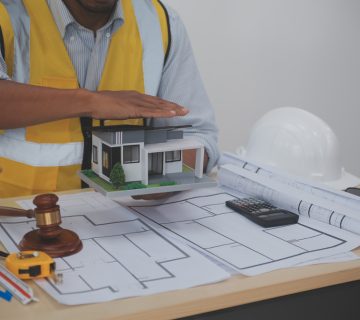Construction projects, particularly those involving high-value commercial real estate, are complex endeavors. With numerous stakeholders, tight timelines, and evolving regulations, even the most well-planned projects can run into disputes. From contract disagreements and change order conflicts to workmanship and delay claims, disputes are unfortunately common in California’s construction sector.
At Stryker Slev Law Group, we have decades of experience resolving construction-related legal challenges throughout San Diego, Los Angeles, and across Southern California. As one of the region’s most established firms, we are known for handling cases the smart way—strategically and effectively. Below, we outline some of the most effective strategies for resolving construction disputes while minimizing financial and reputational damage.
1. Start with Clear Contracts
The first line of defense against construction disputes is a well-drafted, clearly written contract. Contracts should include:
- Defined scopes of work
- Payment terms
- Change order procedures
- Dispute resolution clauses
- Timelines and milestones
Many construction conflicts stem from vague language, unclear expectations, or missing provisions. At Stryker Slev, we assist clients in drafting “bulletproof” contracts that significantly reduce the risk of future litigation.
2. Use Mediation to Preserve Relationships
Mediation is a non-binding form of alternative dispute resolution (ADR) in which a neutral third party helps the involved parties reach a voluntary agreement. It’s one of the most effective tools in preserving business relationships—especially important in the tight-knit world of real estate and construction.
Advantages of mediation include:
- Lower costs compared to litigation
- Faster resolution
- Confidential process
- Flexibility in outcomes
Mediation often helps disputing parties better understand each other’s perspectives, which can pave the way for future collaboration.
3. Leverage Arbitration for Faster Outcomes
When mediation fails—or when parties want a binding resolution without going to court—arbitration is a strong next step. Arbitration can be particularly effective in resolving disputes involving large sums or technical details, such as:
- Alleged construction defects
- Complex delay claims
- Payment disputes involving subcontractors or suppliers
Arbitrators are often experts in construction law or engineering, which can help ensure that the decision-maker truly understands the intricacies of the case.
While arbitration is less flexible than mediation, it typically moves more quickly than court proceedings and keeps matters private.
4. Early Case Assessment (ECA)
Before engaging in prolonged litigation, it’s critical to evaluate the strength of your case early. This process—called Early Case Assessment (ECA)—helps stakeholders make informed decisions about whether to settle, mediate, arbitrate, or proceed to court.
ECA includes:
- Reviewing all documentation and contracts
- Evaluating potential damages
- Understanding opposing arguments
- Weighing legal costs vs. benefits
Stryker Slev Law Group takes a smart, data-informed approach to ECA. Our attorneys assess not only the legal merits but also the business implications of each possible outcome.
5. Document Everything
In construction disputes, documentation can make or break a case. Every communication, change order, inspection, and invoice should be documented clearly and stored securely. Strong documentation allows your legal team to build a solid timeline and narrative, which is critical in arbitration or court.
Tips include:
- Keep digital backups of all documents
- Use project management software to log daily reports
- Archive emails and text messages related to the project
- Take photos of progress and any issues as they arise
6. Bring in Experts Early
Expert witnesses can provide the technical insights needed to support your position. This might include structural engineers, financial analysts, or architects. By bringing experts in early, your legal strategy can be tailored to the factual complexities of the case.
At Stryker Slev, we have built an extensive network of trusted construction professionals whose expert opinions carry weight in arbitration and litigation.
7. Know When to Litigate—and When Not To
While going to court should never be your first choice, there are situations where litigation is the most appropriate option—especially when:
- A party refuses to engage in ADR
- A case involves serious safety or code violations
- A resolution is needed to set legal precedent or recover major financial damages
However, smart legal counsel understands that not all battles are worth fighting in court. A strategic lawyer helps you weigh the costs, risks, and potential rewards of litigation with clarity and objectivity.
How We Can Help
At Stryker Slev Law Group, we don’t just resolve construction disputes—we solve them with intelligence and foresight. With offices in San Diego and clients throughout Southern California, our attorneys have decades of experience representing owners, developers, contractors, and architects in complex commercial real estate and construction matters.
Whether you’re dealing with a construction defect claim, a payment dispute, or contract litigation, we approach your case the smart way—leveraging proven strategies, early assessments, and industry expertise to protect your investment and your reputation.
Let us help you resolve your construction dispute the right way.



